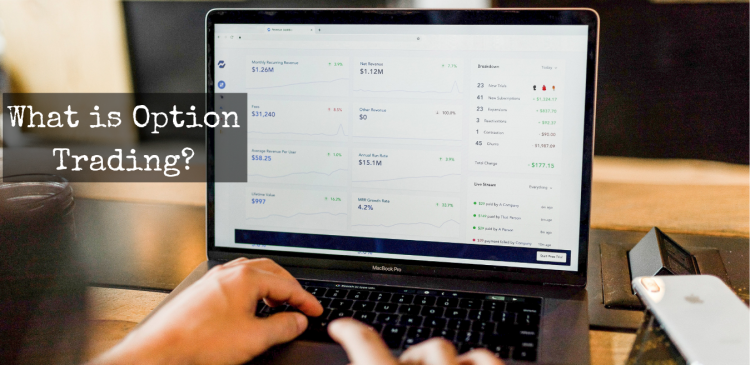what is option trading
Options trading, it is a customizable investment. If you are someone into investments you will have an idea about trading. Forex, stocks and options trading are the different types of tradings, each having its own benefits. Most of the investors use stocks, bonds, ETF’s and mutual funds.
But, do you know what is options trading?
Options based on equities are known as options trading. It is a customizable investment where the prices are derived from some other. The options price is linked to the underlying stock. Options enhance and protect the individual portfolio with the added income, leveraging and protection. Options provide investors with a scenario according to their goals. Many find the concept of option trading difficult but do you know that you have been already adapting to them. Yes, insurance is a form of options trading.
Options offer buyers with the right obligations to buy (call option which allows the buyers to buy a share at a specific time) and sell (pull option allows to sell the shares at a specific time) with the underlying stocks at an agreed price for a certain period of time. The owner of stocks doesn’t have a right to buy or sell the options. The price of a stock is known as premium. A buyer will pay a premium with an expectation that price may scale up before the agreement expires. Unlike stocks, they do not offer ownership and the risk is minimized to an extent as the money can be withdrawn at any time. But there are certain risks the investor must be aware before trading.
Types of option trading
Basically, there are two types of options trading called Call and pull. There are many types of options trading each categorized in different ways. Options are also classified based on the location i.e., European style or American style. It has nothing to do with the geography it is just that the way the contracts are made can be improved.
Contracts can further be categorized based on,
- Trading methods
- Expiration
- Security
The other most commonly used options trading are Exchange trade option, over the counter options, option type by security, option type by underlying security, employee stock options, Cash settled options, and exotic options.
How do options work?
Options are the versatile form of trading. there’s no special approach to buy a stock. The extent of the risk depends on the price of the stock. Options are all about purchasing the underlying stocks. The price with which the stocks are purchased is called strike price (It is a price with which the derivative stock are purchased and sold).
The options are made available in different strike options that may be above or below the price of an underlying asset. If the price of the underlying stock is above $25 the strike price would be about $5 dollars and if it is below $25 dollars the strike price would be for $2 dollars.
The expiry of options is known as the expiration date. The expiration would be for every 4-month interval. Each stock has its own time interval.
- January, April, July, October
- February, May, August, November
- March, June, September and December
Buying an option debits the premium from the buyer’s account. Selling an option generates a credit to the seller’s account. The price of a stock depends on the factors like
- Current price
- Strike price
- Expiration
- Volatility
Not every stock is available for options. There are about 2,200 stocks present out of each stock is equal to 500 shares of a company.
Options as derivatives
Options belong to a group of securities known as derivatives. They are packed with the risk and has the ability to draw down the economic rates. The derivation of price from something else is known as a derivation. Here, the options are derived from financial securities. There are many other security options that fall under the name of derivatives which includes calls, puts, crisis, future, forward and swaps. It is said that, in the year 2008, of all the derivatives, “crisis” has caused the most trouble.
Security
Options can be used in many ways. They either induce the risk or reduce the risk. The underlying securities are ETS( exchange-traded funds), equities and indexes.
It’s all about risk
Options trading is all about risk. This is the reason why most take a back step on investing in options. Not always the probabilities, you must also take care of the risks. When looking into the risks, there are two types of volatility. Historical and implied volatility.
- Historical volatility represents the fluctuations in the prices from day to day basis to over a year.
- Implied volatility represents the “marketplace volatility” in the future or over life.
Always focus on the implied volatility as it determines the volatility in the market. It also determines the look-alike stock reaching a specific price within a period of time.
Advantages of options
- Pay-less to trade with the options
- Limited options for buyers
- Flexibility for traders
- Allows an investor to fix the price
Drawbacks of options
- Expose the seller to unlimited loss
- Limited time for investing
- Get approval from the broker, which may or may not be secured
- Induces additional costs
Trading and investing are a great means of earning an extra amount of money. Be extra careful with its risk before trading.






